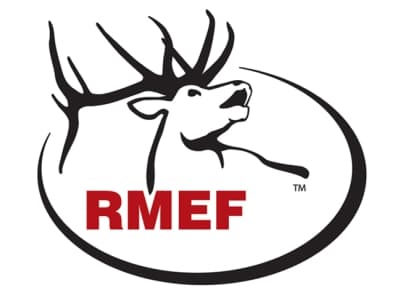RMEF Waives All Revenue from National Convention Tags; Again Calls for Transparency from All Wildlife Groups
Rocky Mountain Elk Foundation 05.08.13

In a continuing effort to ensure the future of wildlife resources and hunting opportunities, the Rocky Mountain Elk Foundation announced it will return 100 percent of the revenue it generates from the auction of state special big game permits through its national events and programs to the individual states.
“RMEF will not accept big game auction tags from any state for fundraising purposes unless all of the revenue derived from it benefits wildlife,” said David Allen, RMEF president and CEO. “This is a much needed investment in our wildlife resource and its management, habitat enhancement, and our hunting heritage. It also assists state agencies dealing with budgetary challenges. These tags were intended to benefit wildlife conservation and hunting access, not the organizations selling them.”
By way of example, RMEF recently auctioned off a special Arizona elk permit for $385,000 at its national convention. RMEF has historically sold the Arizona special elk permit with a 100 percent return to Arizona Game and Fish.
“This is a tremendous investment in Arizona’s wildlife. What everyone needs to understand is every single penny of that $385,000 goes to Arizona Game and Fish for projects to benefit the habitat for elk, mule deer and other wildlife. We want to expand this model to all the states we work with relative to their special tags sold at our national convention,” said Allen. “The RMEF convention historically generates $700,000 to $1 million each year in the auction sale of special tags/permits from state game and fish agencies.”
The special elk tag that RMEF auctioned off is one of three that the Arizona Game and Fish Department (AZGFD) provide to non-profit wildlife conservation organizations as a fundraising mechanism. While the funds raised from those special tags go directly back on the ground, the agency provides the remainder of its tags through a draw system and some limited over-the-counter opportunities for management of populations in specific units, thus giving the average hunter the opportunity to harvest an elk.
“We routinely receive about 80 applications each year for on-the-ground conservation projects that are funded from these proceeds,” said John W. Harris, chairman of the AZGFD Habitat Partnership Committee. “Funding decisions are determined through collaboration with the wildlife conservation organizations that raised the money and Arizona Game and Fish Department biologists. Those relationships extend to the project proponents that include land management agencies, livestock producers, county governments, and private landowners. The projects we fund are routinely cost-shared at least 2 to 1, and our ability to positively influence conservation and relationships among our conservation partners is expanded with every dollar raised. As is so often the case, hunter dollars benefit wildlife resources that all Americans can enjoy. This is yet another example of how Hunting is Conservation.”
“It’s of paramount importance to RMEF to not only be responsible for the money raised for wildlife, but to follow those funds from start to finish to make sure those who use them do so for their intended purpose,” said David Allen, RMEF president and CEO. “Sportsmen and women need to demand transparency and hold RMEF and all wildlife agencies and conservation organizations accountable, especially for the money and its use. These tags are a matter of public trust and we are proud to be part of that effort.”
Allen went to reissue a call to all other wildlife conservation groups to allow full and complete transparency of all their financial information including the publishing of their audited financials from each fiscal year. “We voluntarily submit to independent audits of our annual finances. Why should we not make this information available to our members and the public at-large? If we were a publicly traded business we would have to do this on a regular basis. Let’s do it as a matter of respect for, and accountability to, our members and the public.”
Public trust is one of seven cornerstones to the North American Model of Wildlife Conservation which highlights two basic principles – that our fish and wildlife belong to all Americans and that they need to be managed in a way that their populations will be sustained forever. Sportsmen and women provide the bulk of wildlife management and habitat funding to state agencies through the purchase of hunting and fishing licenses as well as self-imposed taxes implemented decades ago. They also make donations to and support conservation organizations like RMEF.
“When you look at the big picture, it’s amazing how the cost associated with just one tag can make such a positive, wide-ranging difference for our wildlife and for improving hunting opportunity,” added Allen.

